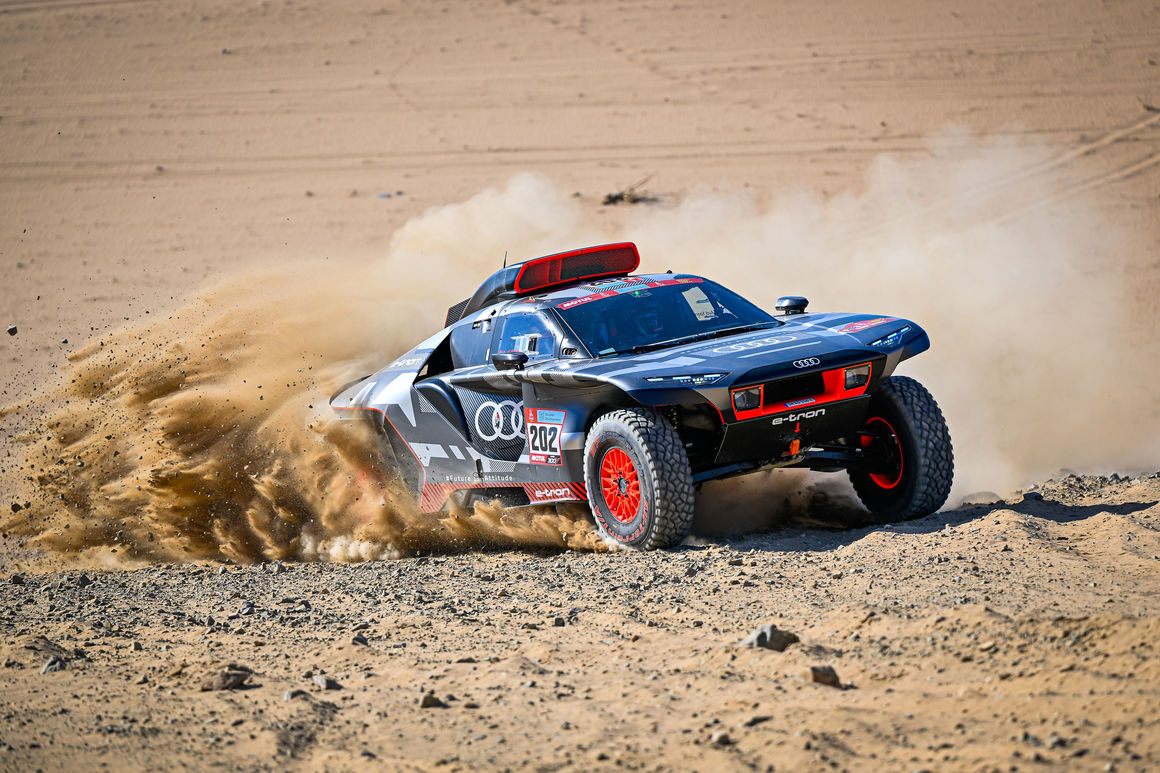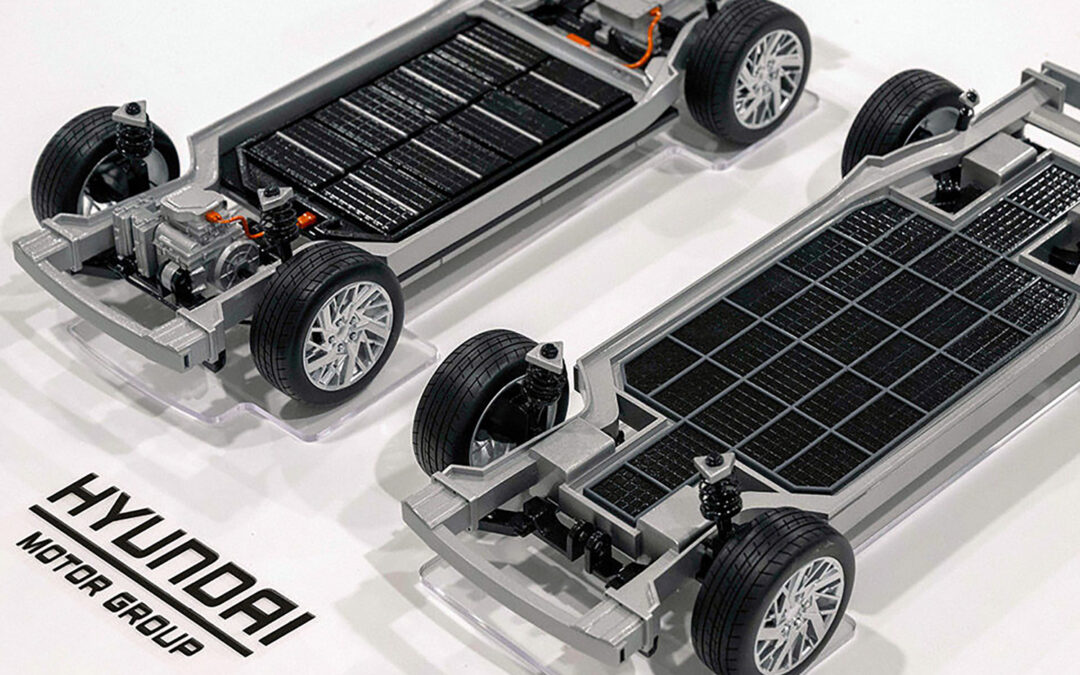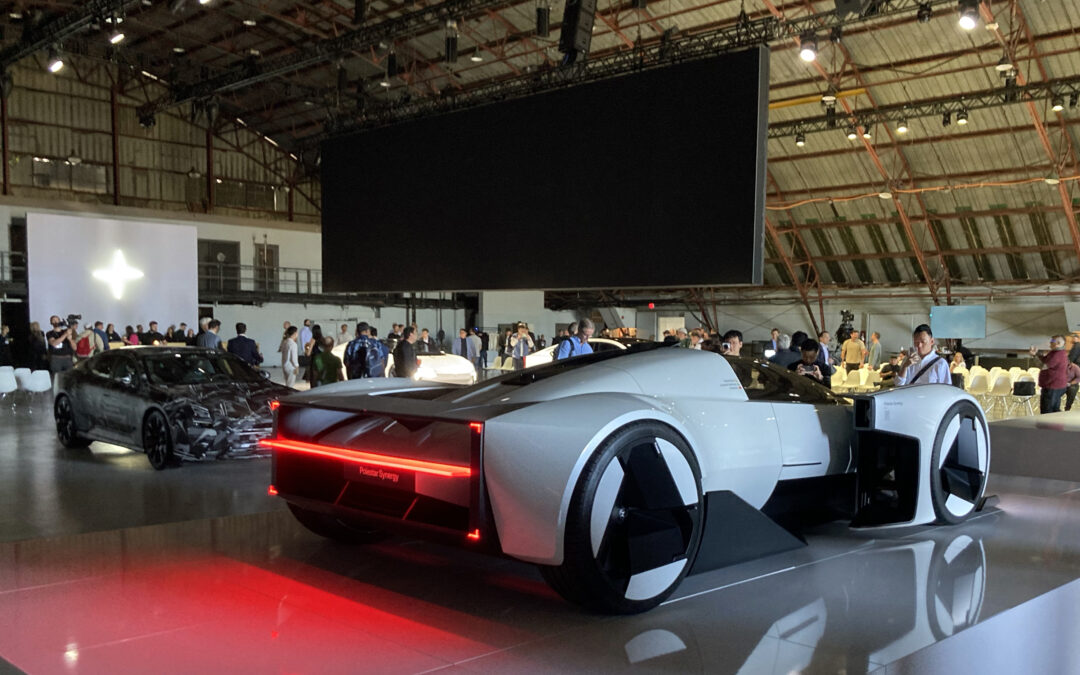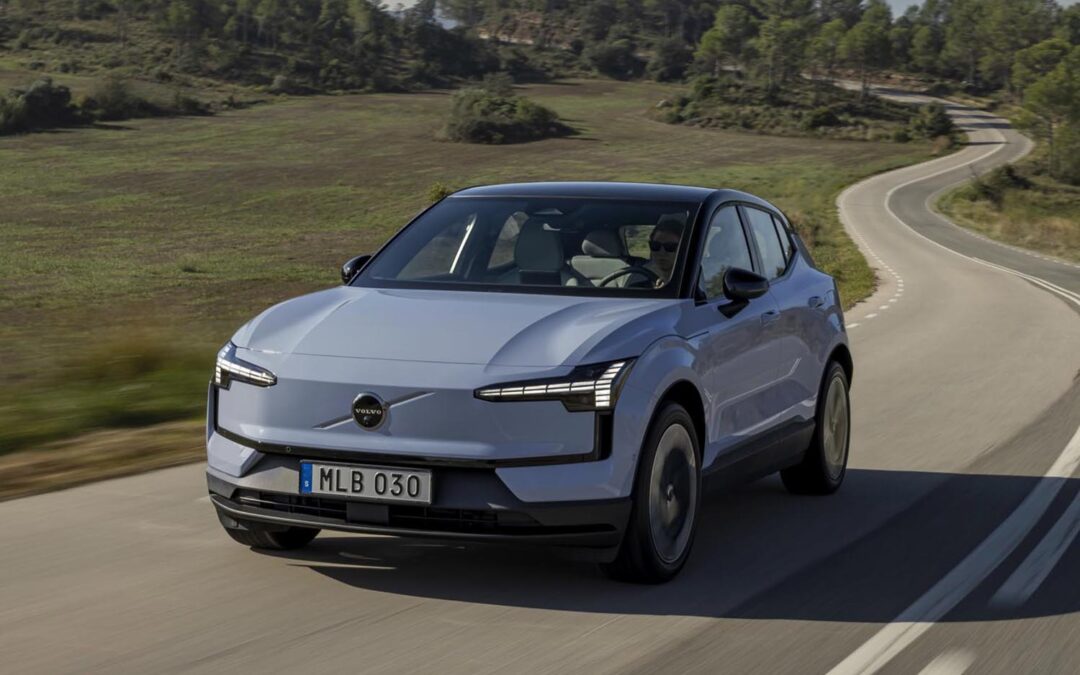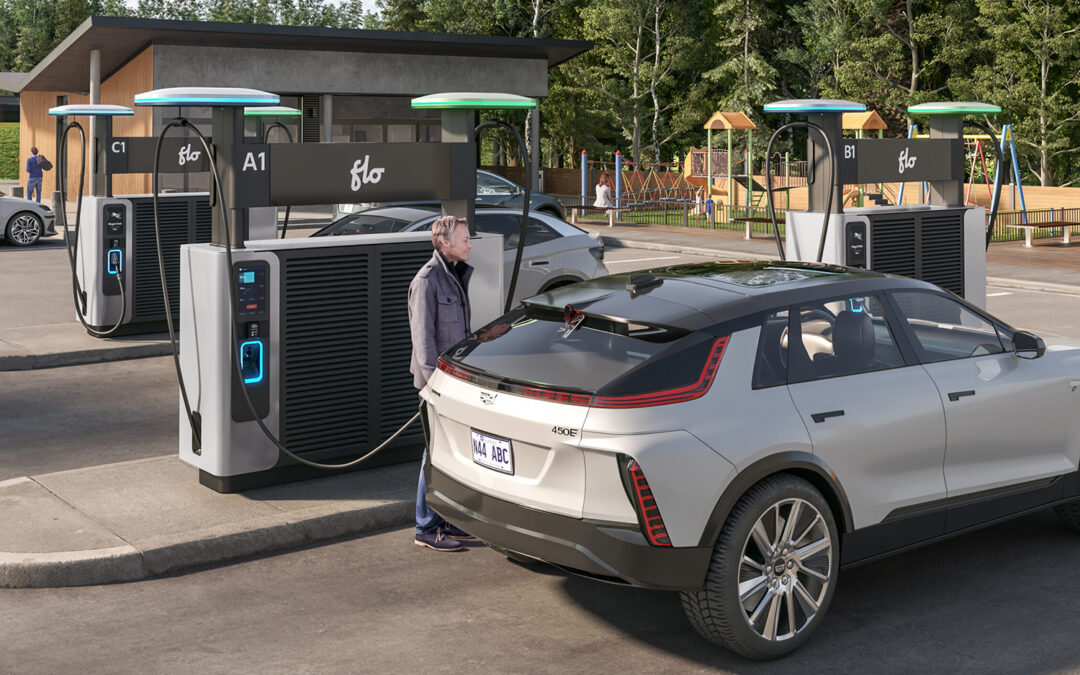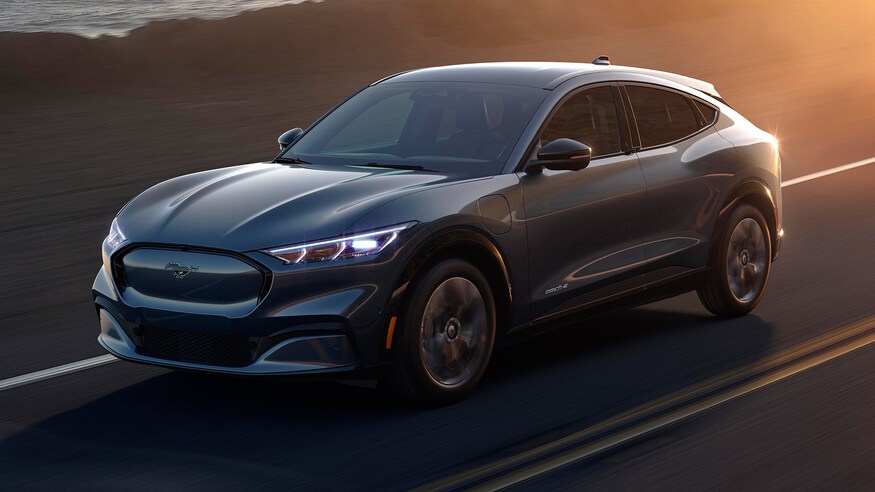Two-time World Rally Champion Carlos Sainz has secured the first stage win on the notorious Dakar Rally for an electric vehicle with Audi, driving the RS Q e-tron hybrid.
Sainz, who won the event outright in 2010, 2018 and 2020 with Volkswagen, Peugeot and MINI respectively, started his 16th Dakar Rally, and his first with Audi, on Saturday’s ‘Prologue’. He then went on to complete Tuesday’s 255-km Stage 3 just 38 seconds ahead of Toyota’s Henk Lategan. Ironically, the 1990 and 1992 WRC champion spent the majority of the stage trailing the South African before closing the gap to 14 seconds ahead of the seventh waypoint. With momentum now on his side, Sainz pulled ahead before the next checkpoint and had amassed a 38-second lead when he crossed the finish line.
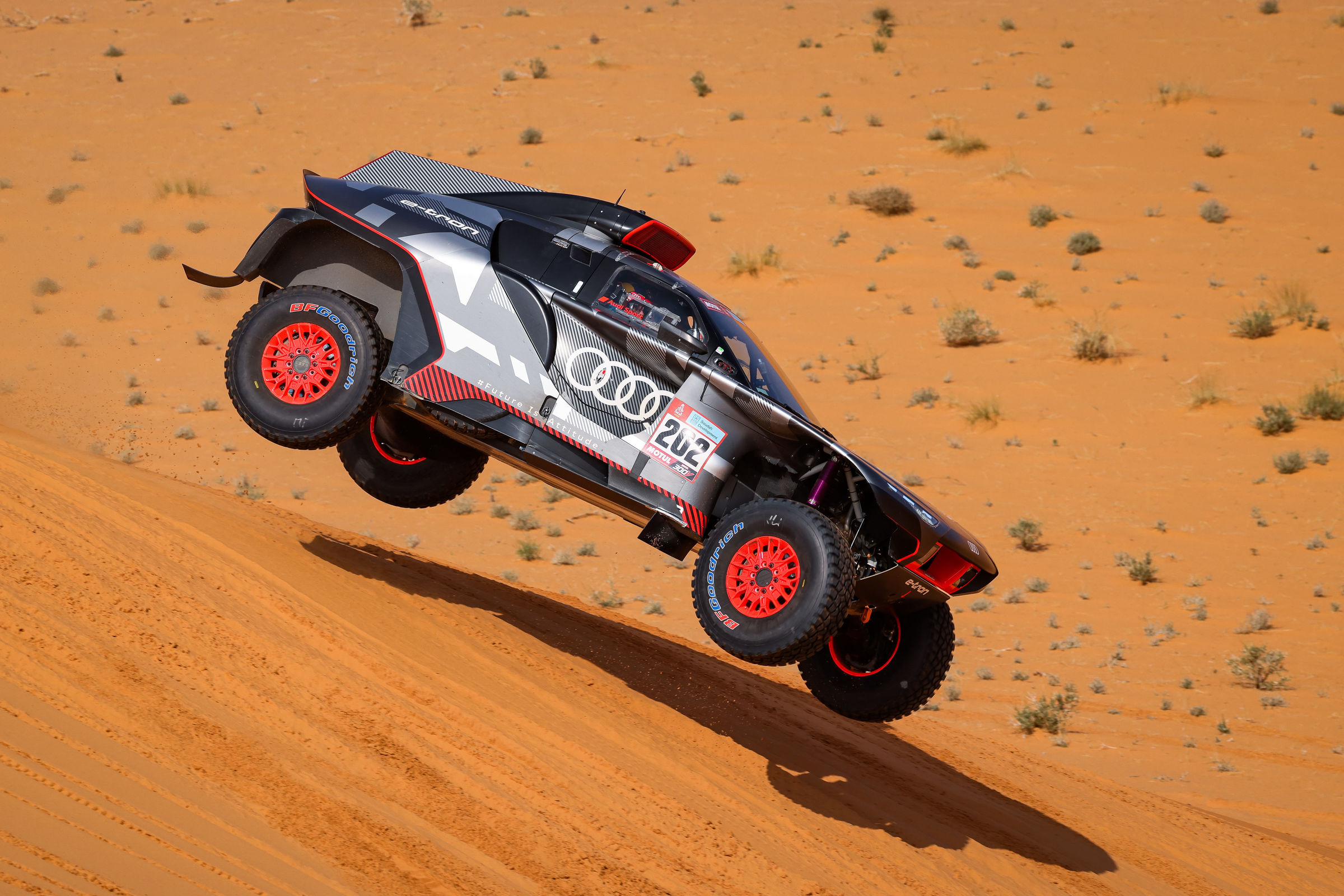
Carlos Sainz in the 2022 Dakar Rally, driving an Audi RS Q e-tron
The result follows Sainz’s 3rd place on the 338-km Stage 2 behind nine-time World Rally champion Sebastien Loeb and 2022’s outright leader, Nasser Al-Attiyah. It also marks the 40th stage win for Carlos Sainz on the Dakar Rally during the course of his event career, putting him fourth on the all-time list behind Ari Vatanen, Stéphane Peterhansel, and Al-Attiyah.
Sainz’ victory was also the first win for an Audi on the Dakar since privateer Bernard Darniche took a stage win at the event in 1985.
Behind Lategan, fellow Audi runner Peterhansel, who has won the Dakar an incredible 14 times since 1991 (eight on four wheels, six on two), finished Stage 3 in 3rd. Two-time DTM champion Mattias Ekstrom, who made his Dakar debut last year, was the third Audi runner in the top five.
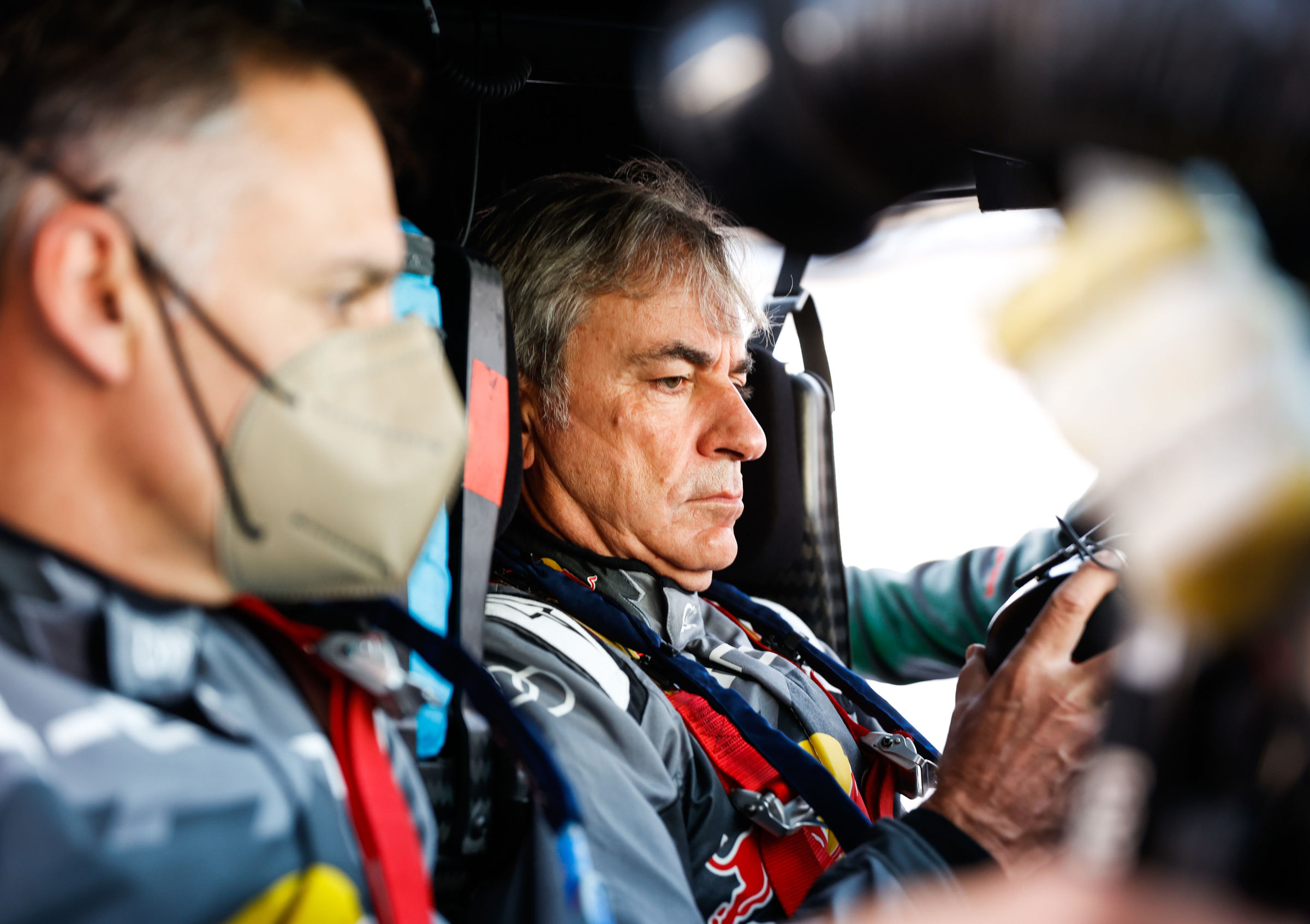
Carlos Sainz in the 2022 Dakar Rally, driving an Audi RS Q e-tron
Audi revealed its first all-electric Dakar Rally contender in July last year. The RS Q e-tron, measuring 4.5 metres by 2.3 metres, and standing 1.95 metres tall, features a drivetrain using technology drawn from its all-electric Formula E campaign. Inevitable considerations on the Dakar, including soaring temperatures and vast distances, mean the RS Q e-tron features three motor-generator units (MGUs): the first, weighing 33 kg and punching 250 kW, powers the front axle; a second is connected to a converter which charges the 370 kg, 52 kWh battery with brake regeneration; and the third drives the rear wheels. A single-gear gearbox is also mated with each axle.
While the drivetrain is electric, a 2.0-litre TFSI turbocharged four-cylinder, lifted from Audi’s DTM car, has been incorporated to help charge the battery on the move with the brake-regen MGU, given the lack of charging opportunities in the desert.
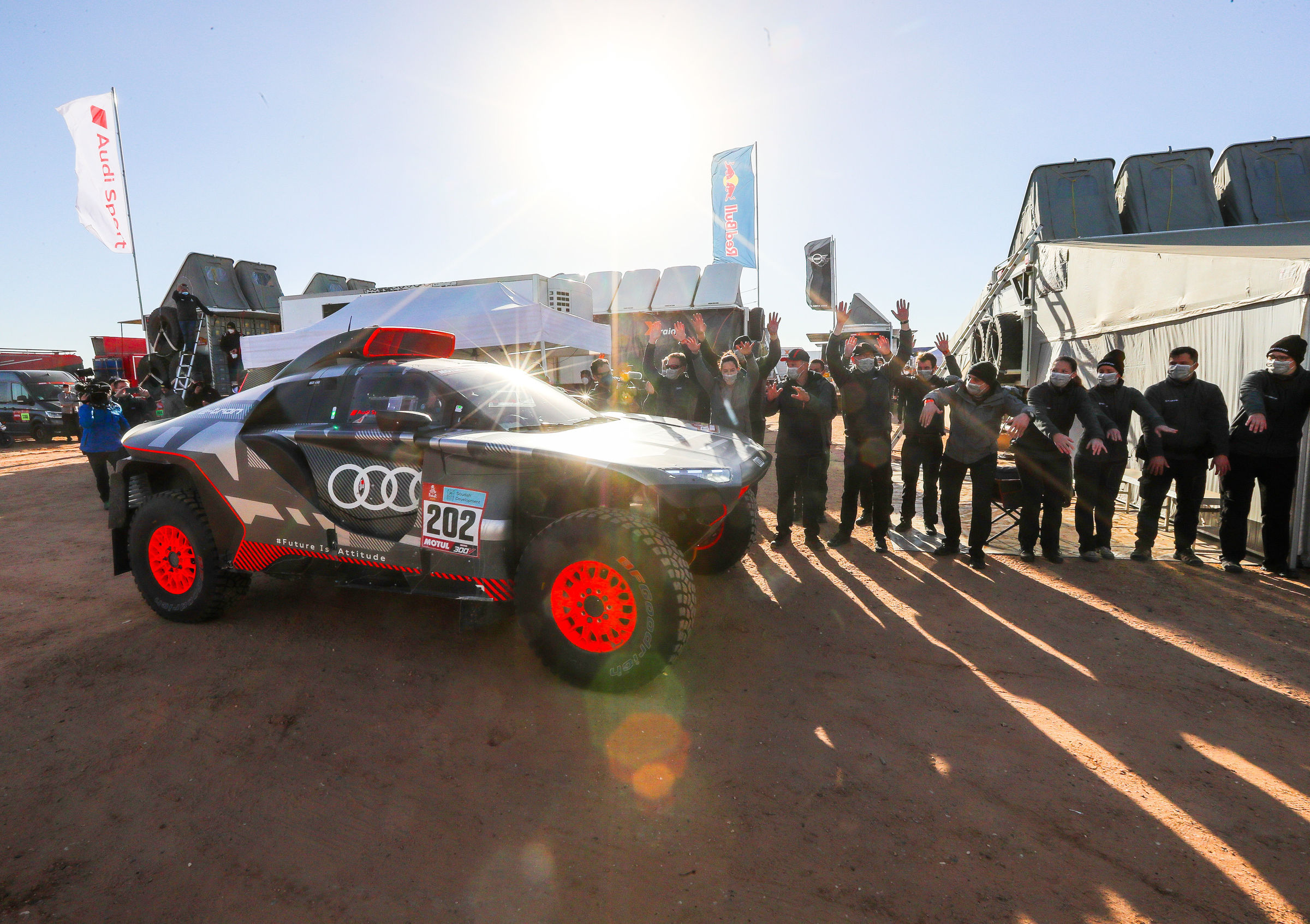
Carlos Sainz in the 2022 Dakar Rally, driving an Audi RS Q e-tron
Sainz, Peterhansel and Ekstrom went on to complete a two-week shakedown with the RS Q e-tron in Morocco in September ahead of the car’s Dakar debut. Audi admitted though that higher than expected temperatures led to unforeseen issues with the electric drivetrain, and the RS’s planned debut at last October’s Rally of Morocco was consequently scrapped in favour of more testing.
Despite his recent win, Sainz has also called in to question the Balance of Performance regulations on this year’s Dakar rally, arguing Audi’s electric contender has been “penalised” for running the same power as its rivals, despite weighing considerably more.
Sainz’s hopes of a four Dakar rally win were further compounded on Stage 1 when the WRC legend lost two hours in search of a checkpoint and further time to a mechanical issue. Consequently, despite his stage win, Sainz now lies 21st overall in the standings – three places down on highest-placed Audi driver Ekstrom – and almost 2.5 hours behind the overall leader. Peterhansel meanwhile is already out of contention after a heavy accident on Stage 1.
